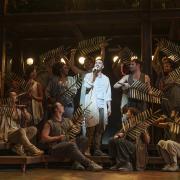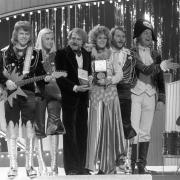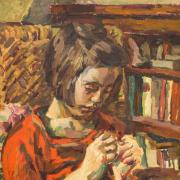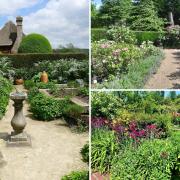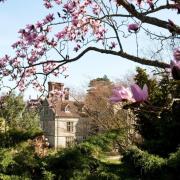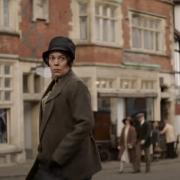The Connaught Theatre in Worthing has enjoyed an illustrious history. As it marks its centenary, Alice Cooke examines how it became the local institution it is today

Mention Worthing to any actor who began their career in repertory theatre and they all say the same – working at Worthing’s Connaught Theatre ensured a prosperous career. Actress Elizabeth Spriggs explains that, unlike other provincial theatres, “from Worthing you could go anywhere – the West End, Stratford-upon-Avon, television or straight into films.”
Film played a large role in the Connaught Theatre’s creation. The excitement of cinema had begun to sweep the nation and the Connaught Theatre’s predecessor, the Picturedrome, was built in 1914 with one entrance on Chapel Road and another on Union Place. The popularity of Worthing increased and so did the demand for entertainment venues, which led to the Connaught Hall being built next to the Picturedrome in 1916, where amateur dramas and dances were staged.
Repertory theatre had been put in jeopardy by the opening of the luxurious Pier Pavilion in 1926, and by 1929 Worthing’s centre of repertory theatre, New Theatre Royal in Bath Place, was threatened with closure. A radical plan was required to keep it open and Worthing became the first municipal authority to subsidise a repertory company, but sadly even they could not save the theatre, which closed permanently later that year.
Stage manager and theatre impresario Walter Lindsay, who had fuelled the development of repertory in the town, was furious that the New Theatre Royal had closed and found an alternative theatrical venue for a repertory company at the Connaught Hall. He converted it into an intimate theatre and continued to fight against mounting debts in an attempt to maintain drama in Worthing, but soon the town was regarded as unsympathetic towards theatre and its second repertory company failed.
Despite this, the possibility of a West Sussex-based theatre company had not been entirely dismissed. In 1932 Charles Bell and William Fraser presented their first season of repertory productions at the Connaught Hall, having enjoyed theatrical success in Brighton and the West End. Their company went from strength to strength and changed its name from The Mask Players (as it had started out), to Worthing Repertory Company. By 1935 their success was apparent and Carl Seebold converted the Picturedrome into the much larger New Connaught Theatre, with the Connaught Hall being known variously through the years as the Old Connaught Theatre, the Home Guard Garrison Theatre and Ritz Ballroom, before it became the Ritz cinema, RitzDigital and most recently the Connaught Studio, as it is known today.
Bell and Fraser played their final performance of Happy Ending at the Connaught Hall on Saturday 28 September 1935, just 48 hours before opening on 30 September at the newly refurbished art deco New Connaught Theatre, with the play Theatre Royal. The opening night was an overwhelming success, with 5,000–6,000 requests for tickets for the 920-seat theatre. Popularity was greatly helped by a fabricated story, leaked to the press, about Bell and Fraser’s rags to riches beginning which, although false, is still replicated today. Bell and Fraser were toasted that night in the bar at the New Connaught Theatre, the largest theatrical bar in the country at the time.
The theatre continued under private management for the next three decades but eventually closed as a commercial enterprise in 1966, when it was purchased by Worthing Corporation and re-opened in 1967 under the management of trustees. Since 1999 the Connaught complex has been under the management of Worthing Borough Council.
Those who have trodden the boards at Worthing include Patricia Routledge, Christopher Lee, Peter Cushing, Ian Holm, Susannah York, June Whitfield and David Suchet, while writers such as Sir Alan Ayckbourn, Harold Pinter and Ray Cooney all learned their craft at Worthing. To this day many continue to return to the theatre with their work.
01903 206206; www.worthingtheatres.co.uk--------------------------------------------------
Read on
• 5 Christmas markets to visit in Sussex• New biopic ‘Mr Turner’ starring Timothy Spall filmed at Petworth House






